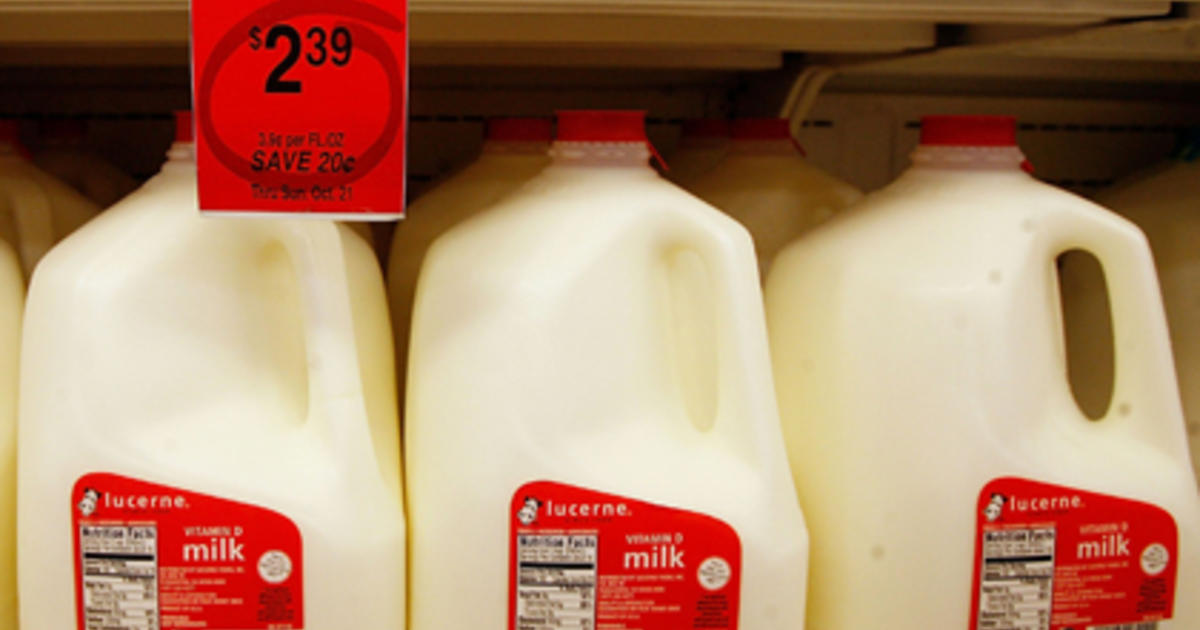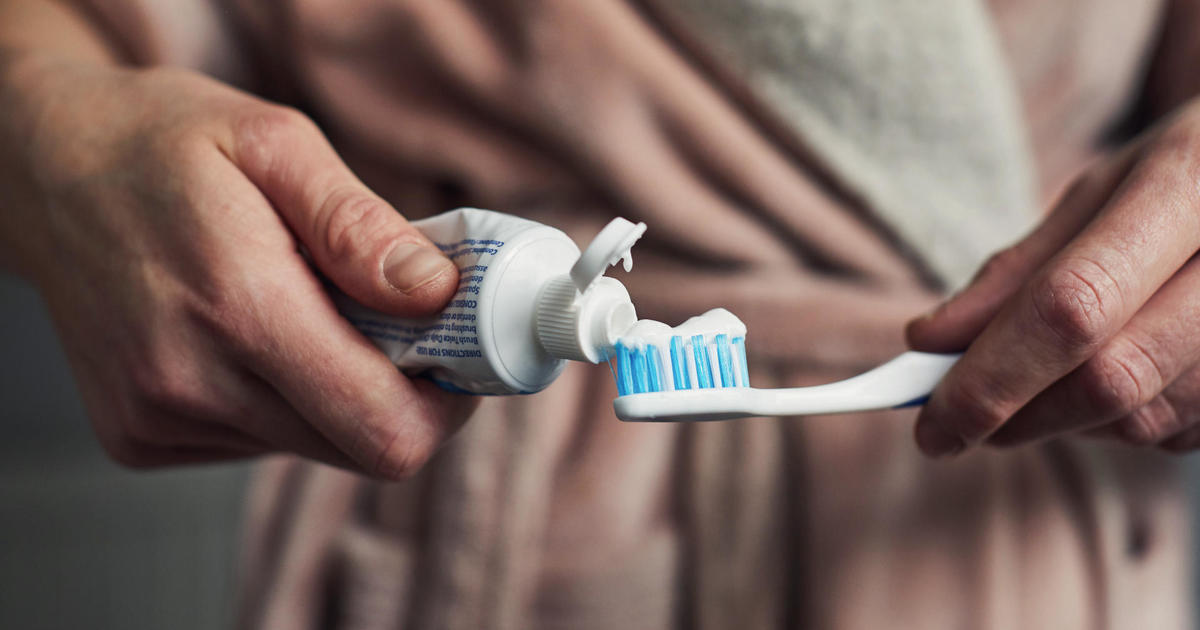Transcript: Scott Gottlieb discusses coronavirus on "Face the Nation," August 16, 2020
The following is a transcript of an interview with former FDA Commissioner Scott Gottlieb that aired Sunday, August 16, 2020, on "Face the Nation."
MARGARET BRENNAN: We go now to former FDA commissioner Dr. Scott Gottlieb. He's in Westport, Connecticut, this morning. Good morning to you, Doctor. Good to have you back.
DR. SCOTT GOTTLIEB: Good morning.
MARGARET BRENNAN: I want to start where we always do, which is where we stand right now. 1,500 deaths on Wednesday. That rate back to where we were in the spring. You heard Jared Kushner say basically not as bad as the spring, but what does it say about where we are right now that we're at these levels and where are we headed?
DR. GOTTLIEB: Well, it's been fairly persistent. We thought we'd be coming down by now, we'd see deaths peak and start to come down as the epidemics in the southern states started to peak and decline. But there's been a fairly persistent level of infection, hospitalizations and deaths over the last couple of weeks. We've had over a thousand deaths a day for at least two weeks now, over 50,000 infections a day on average. We hit 55,000 in the last day. Hospitalizations have come down a little bit, but they haven't really started to decline very rapidly. What's happening is as the cases start to decline in the southern states, Arizona, Texas, Florida, we're starting to see infections pick up in other parts of the country. California is still increasing. Really, the only state that seems to have come down quite a bit of the epidemic Sun Belt states is Arizona. And we now have 14 states with positivity rates above 10%. Mississippi at 21%, Nevada 17%, Florida at 18%. So there's still a lot of states with pretty high positivity rates.
MARGARET BRENNAN: In talking with Mr. Kushner, he said most people dying are over 70. And he also talked about his confidence sending his kids back to in-person classroom education, saying children have six times higher chance of dying from the flu than covid. Do you know where those numbers come from? Does that sound right to you?
DR. GOTTLIEB: Well, I don't know where the six times comes from. We need to be careful, I think, about making comparisons to flu. This infection hasn't been as prevalent in children as flu is each year, there's been about 330,000 diagnosed infections. If you believe we're diagnosing one in five to one in 10 infections in children, maybe there have been about three million kids who've been infected with this. Flu is estimated to cause symptomatic illness in upwards of 11 million kids every season. This was a 2018-2019 season. And it causes a fair degree of asymptomatic infection in kids as well. So the prevalence is much higher. With flu we see upwards of about 400 tragic deaths a year. We've already seen 90 deaths about- from COVID in children. And it just hasn't- probably hasn't been as prevalent in kids. And we also see concerning indications of post viral syndromes, this multisystem inflammatory syndrome, which has affected 570 children, that's been recorded so far. So there's a lot we don't understand about COVID in kids. I think we need to be careful about making comparisons to flu and the death and disease we see in flu relative to COVID.
MARGARET BRENNAN: The CDC said this week that people who've recovered from COVID are essentially immune for at least three months. What do we know about immunity?
DR. GOTTLIEB: That's right. And so this was the first study where they could say with certainty that for at least three months you have immunity that would guard against reinfection. They actually said people who have been exposed to COVID who've had infection in the last three months, don't need to self quarantine because the immunity is that absolute. That doesn't mean you're not going to have immunity for a longer period of time. The study just looked at three months. COVID hasn't been around long enough for us to really study long term immunity in a practical way in people in the community. But it's probably the case that you're going to have a period of immunity that lasts anywhere from six to 12 months. It's going to be highly variable. Some people will have less immunity, some people will have slightly more. But it's good news that they're able to document that people have really sterile immunity. They're not going to get reinfected for at least three months and probably longer than that after infection.
MARGARET BRENNAN: But this concept of herd immunity is it- and I mean, how close are we to that? What do you think of it?
DR. GOTTLIEB: Prob- probably a long way from herd immunity. If you look at the seroprevalence studies overall, maybe 8% of the population as a whole has been exposed to this. In outbreak states like Arizona it might be higher, closer to 25% based on some modeling, maybe as high as 20% in Florida based on certain modeling and 15% in Texas. We know the seroprevalence in New York City is 20%. So that's getting closer to a level of immunity where the rate of transmission will start to decline. It's not quite herd immunity, but you're going to see declines in the rate of transmission because of that- that level of infection. There's also speculation around T-cell immunity, whether or not people who have prior infection with coronavirus have some residual T-cell memory that confers immunity. We don't know if the T-cells confer immunity, but we do know now that people who had prior infection with coronaviruses, other coronavirus have what we call cross reactive T-cells. So they have T-cells that cross react with this particular coronavirus. Now, whether that confers a level of immunity has to be demonstrated and we're not sure. Probably if it does, what is doing is it's helping prevent you from getting COVID the disease, but you're still going to get coronavirus the infection and maybe even be able to transmit it.
MARGARET BRENNAN: The president on Friday announced that McKesson Corporation will be a central distributor of a COVID vaccine and supplies. But he also said the military is ready to distribute doses. Do you think it should be the private sector or the government distributing any vaccine?
DR. GOTTLIEB: I think what the government ought to do is leverage the private sector, the- the companies, the distributors, the manufacturers know how to distribute vaccines through the existing supply chain. I think if the government tries to take physical possession of these vaccines and then distribute it through channels they set up, that could ultimately lead to hiccups and delays in getting vaccines to consumers. What they should be doing is directing the existing supply chain on where to allocate those vaccines based on where they perceive the need and what the allocation system is going to be, based on who the vaccines are ultimately approved for, whether they're approved for frontline health care workers initially authorized for people who are at higher risk. But I wouldn't try to recreate the wheel here. I would use the existing supply chain that's worked quite well to distribute a lot of different vaccines very quickly. We were able to distribute the flu vaccine very efficiently through the existing supply chain.
MARGARET BRENNAN: OK, well, if and when we get there. And thank you very much, Dr. Gottlieb. We'll be back in a moment.



